Notes
U.S. / NBC to Michael Phelps: Win, or Else!
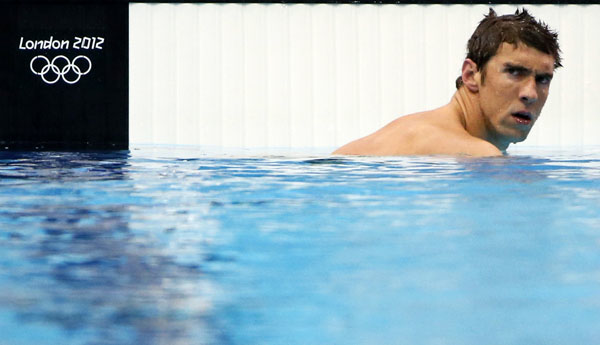
But the perceived rivalry between Phelps and Lochte is a very interesting story here at the London Olympic Games. Whenever I photographed the two of them together in the past, they would always be laughing, joking, and never, ever ignoring one another. Since the first training session here in London last Monday afternoon, I’ve noticed the lack of talk, smiles, laughter, and even recognition.
Lochte is no longer finishing second to ‘The King’, so I am left wondering if these results have affected their friendship. The simple fact is, I will never know, but I am hoping they can recover from their competitive thoughts and acknowledge each others amazing abilities.
— from photo story “A goldless Michael Phelps,” by David Gray on Reuter’s Photographers Blog.
Ha, for a second I thought the Reuters headline “A goldless Michael Phelps,” actually said “godless.”
Ever consider the possibility that any tension or sense of rivalry between the two men might be fostered, if only slightly, by the overwhelming wall-to-wall, ego-oriented and thoroughly USA-centric media coverage pitting the two men in mortal competition with one another amplified by the petty but completely typical attitude that anything short of gold makes you a failure, a loser, a disgrace?
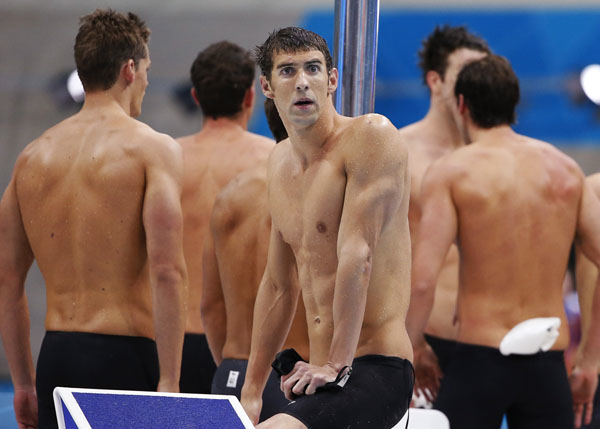
… And what about the possibility that the photo of the “perceived” rivalry Mr. Gray assumes reflects any of a dozen emotions that don’t have very much to do with the “hated rivals” meme the media sets up like an addict to crack, whether we’re talking sports, or any competitive arena. Yes, like Hillary and Obama … and we know how badly that turned out.
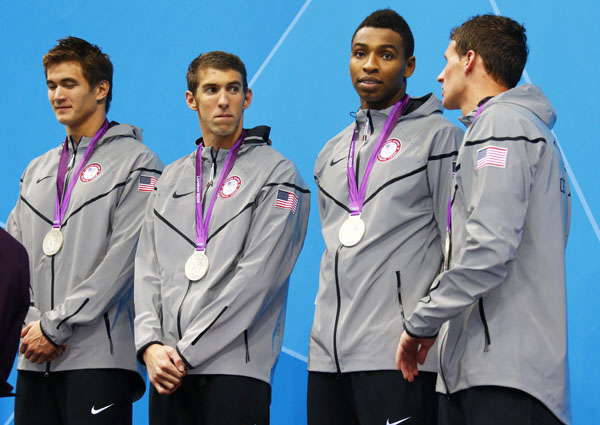
If there is anything humiliating or shaming here, it’s how much stone age attitudes and expectations not only permeate the Olympic coverage, but even more troubling, continue to be completely taken for granted.
Sure, call me Polyanna, but competition is about giving your all, bringing out the best in everyone and anyone (from anywhere), and then celebrating where the chips fall. It’s not about kicking somebody else’s ass. In a healthier world and a more secure country, you’d think that Michael Phelps, simply based on his achievement four years ago, would be a more venerated athlete, his reputation and his future bulletproof, regardless what plays out in London. Instead however, he is subject to a media hounding — a nationally broadcast version of “what have you done for me, yesterday?”
I cringed watching the treatment he had to stomach last night from Andrea Kremer following his first place finish in the 200m Butterfly semi:
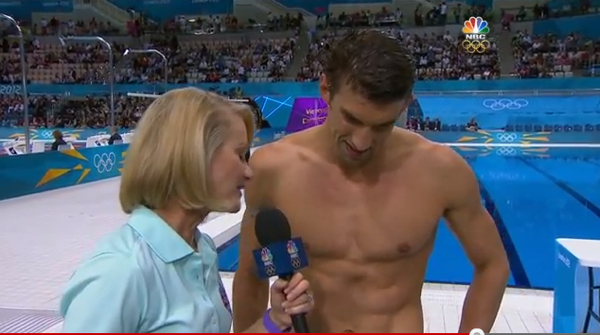
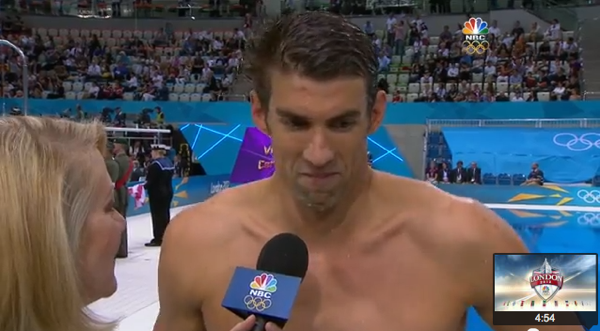
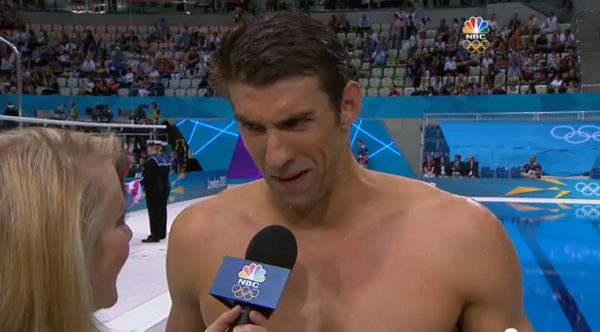
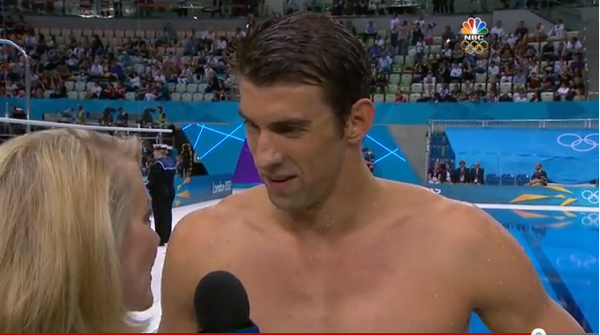
Andrea Kremer: Okay, I want to check in on the state of Michael Phelps here. Maybe walk the Phelps fans back in off the ledge here.
…
People are wondering, which Michael are we going to get to see. The Michael who didn’t make the podium in the 400 IM, or the one who had the phenomenal split in the relay? Which Michael shows up??
Phelps: We’ll see in 24 hours.
Andrea Kremer: No, c’mon! Which, which, which … where are you? Where is that killer instinct lie?
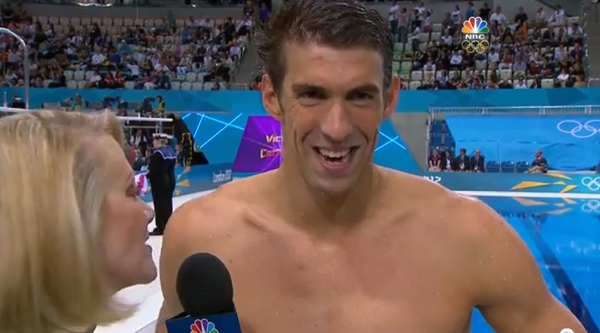
Of course, you would never have noticed the confused, stung and awkward reaction in Phelps unless you watched the video as closely as I did. Instead, what the public mostly saw and took-away is how Phelps laughed it off, telling Kremer his swimming speaks for itself. Of course, top athletes are used to this treatment and trained to dispel it. That doesn’t excuse it, however, or take away from the fact this kind of entitlement and disrespect, bordering on hostility, isn’t indicative of a deeper problem.
I guess what I’m wondering is whether people would actually think twice about how we treated our heros if it was more obvious the “win, or else” attitude said less about Phelps than it says about us. Or, are we that far gone?
(photos: David Gray/Reuters. Reuters Photographer’s Blog. screen grabs: NBC Sports. Interview starts at the 3:50 mark in this NBC video clip)

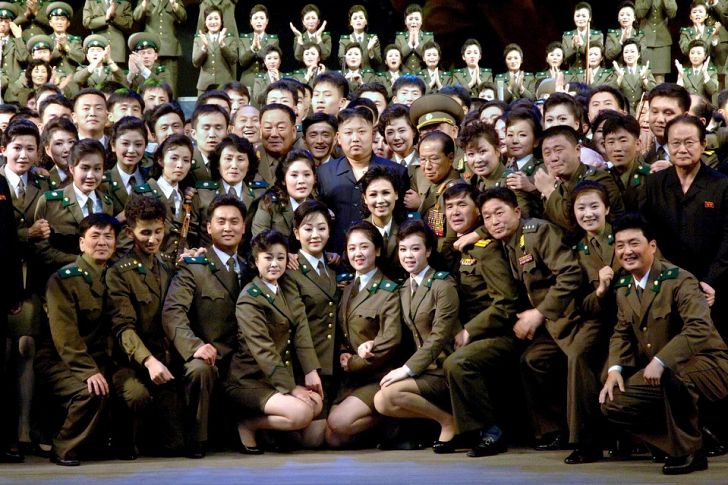
Reactions
Comments Powered by Disqus